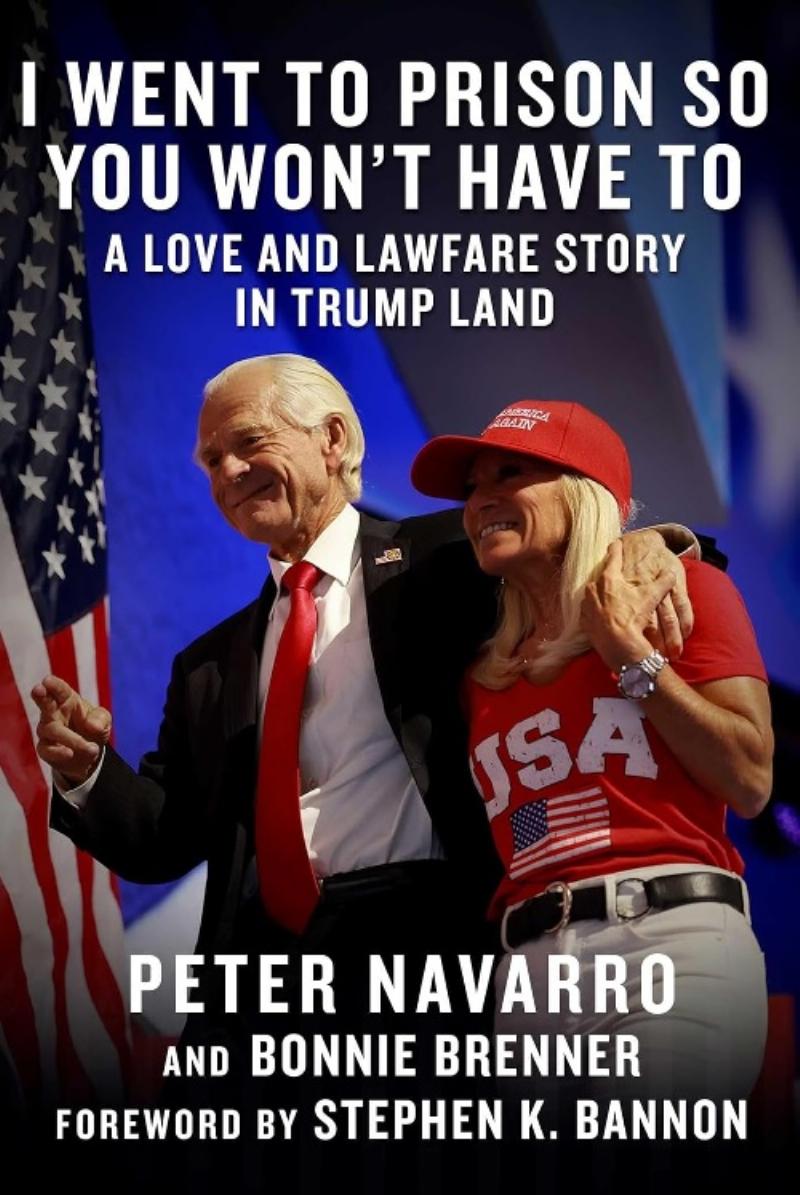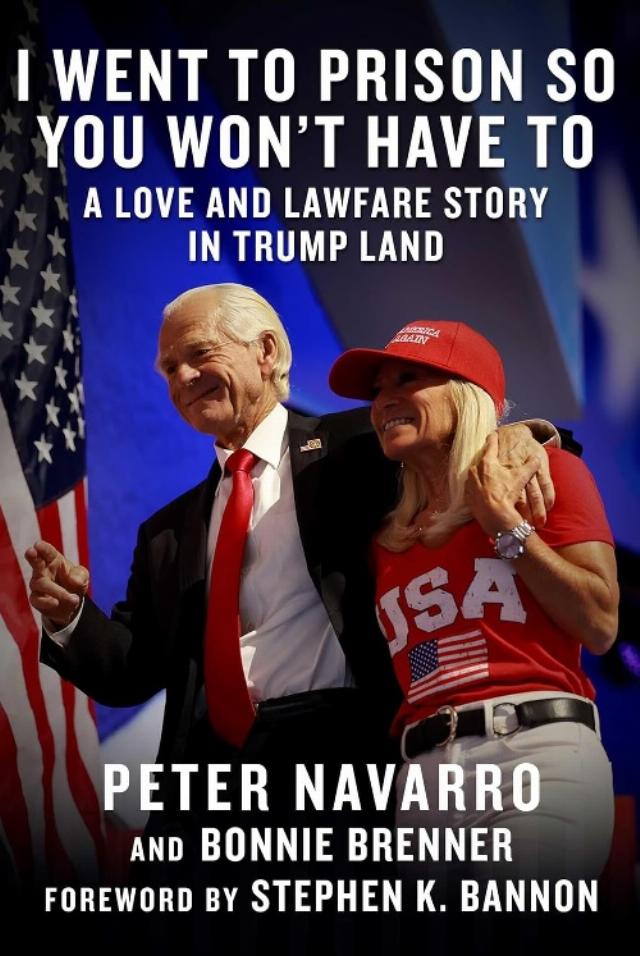


If you’re looking for a political memoir that offers more than recycled talking points, I Went To Prison So You Won’t Have To is worth your attention. Peter Navarro doesn’t deal in soft-focus nostalgia or self-pity. Instead, he offers receipts -- timestamps, transcripts, and meticulous notes on what happened when he refused to “flip,” refused to waive executive privilege, and refused to say something he didn’t believe.
The cost of that loyalty was a misdemeanor conviction and a federal prison term he frames as political retaliation. Whether you see it as folly or fidelity, the book’s central thread is unmistakable: Navarro’s loyalty to Donald Trump and to a constitutional theory of the presidency that insists that confidential advice must remain confidential.
The heart of the book is its detailed account of the January 6th Committee proceedings, which Navarro unapologetically brands a “witch hunt.” He doesn’t write in generalities. Instead, he names names, quotes letters, and makes clear who, in his view, resisted a weaponized process and who acquiesced. The point is not simply to relitigate his contempt case, but to situate it within a broader effort to break the will of the America First movement ahead of the 2024 election cycle.
Even those who think he should have “just pled the 5th and perhaps avoided prison” will recognize the deliberate posture: take the punch, don’t betray the boss, and let the record speak.
The Miami prison chapters offer an odd mix of farce and menace. Navarro recounts trying to comb his hair with a plastic fork because the commissary was closed, being told by a prison dentist to “get Blistex at Walgreens,” and watching staff frantically scrub walls and replace lightbulbs because “a political guy” was arriving.
But the humor quickly gives way to darker moments: an SIS raid that “smashed showers and ripped out fixtures,” commissary prices inflated to triple what you’d find at a big-box store, and what Navarro calls a First Step Act loophole that denied him time credits because his sentence carried no supervised release. These anecdotes double as reporting from the inside -- field notes on a system both bureaucratic and brutal.
What keeps the book from descending into grievance is its framing as a manual for withstanding pressure. Navarro explains why he didn’t appear before the committee to plead the Fifth, arguing that doing so would have dignified a process he believed was punitive, not legislative. He insists that executive privilege wasn’t his to waive, that the Department of Justice departed from decades of precedent, and that the constitutional remedy lay in negotiated accommodations between the branches -- not in a courtroom cudgel.
You may disagree with his legal strategy, but there is consistency in the ethic: hold the line, even when it hurts.
Threaded through the legal and political drama is something unexpected: a love story. The “Pixie Posts” -- letters and phone calls with his partner -- add warmth and humanity to what could otherwise read as a legal brief. From 15-minute rationed phone calls to vending-machine “date nights” and even the act of watching the same crescent moon from two different cities, these vignettes reveal a deeply personal resilience. They remind readers that behind the politics sits a man navigating separation and adversity.
The value of I Went To Prison So You Won’t Have To lies not in whether you agree with Navarro’s politics or legal strategy, but in the transparency of its detail. It gives readers an inside-the-room perspective on how a senior adviser understood the collision of executive privilege, congressional investigation, and political vendetta.
The book also makes a broader argument: that the same tactics used against Trump -- forum shopping, selective leaks, criminalizing policy disputes -- were deployed against his advisers to fracture a movement. Navarro’s answer was not to bend.
This is not a memoir of martyrdom, nor is it an apologia. It is an account of a man who chose loyalty over expedience, and who recorded the costs with candor and precision. Read it as a case study in political resilience. Read it as a portrait of constitutional brinksmanship. Or simply read it for the odd mix of absurd humor and bureaucratic cruelty in its prison chapters.
Whichever lens you choose, I Went To Prison So You Won’t Have To will leave you with fewer illusions, more facts, and an appreciation for the personal costs of refusing to compromise under pressure.

Image: War Room Books
